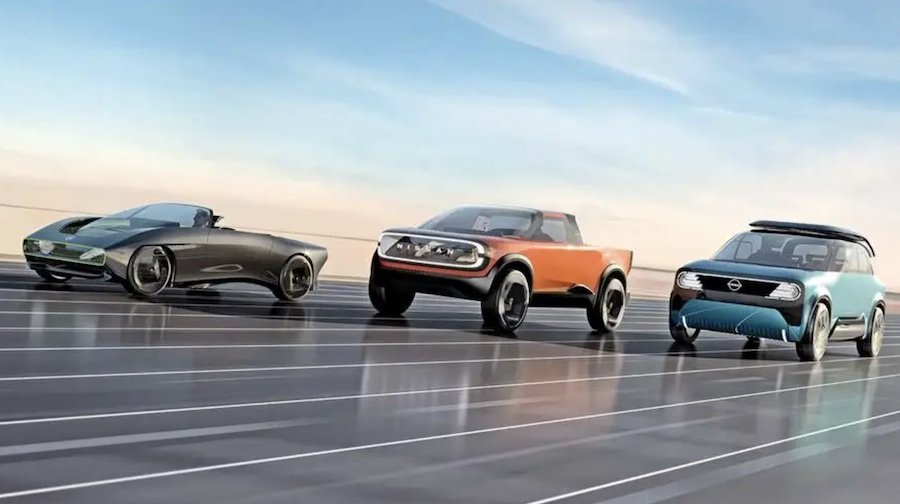Nissan Says EV With Solid-State Batteries Is On Track For 2028 Release

In early 2022, Nissan announced plans to start series production of solid-state batteries in 2028. Before that happens, a pilot production plant will be up and running by 2025, with the engineering work completed by 2026. In a new interview with the British magazine Autocar, the company's vice president for R&D in Europe talked about the three main advantages.
David Moss reiterated solid-state batteries will triple charging speeds, reaching up to 400 kW. In addition, Nissan is looking to double the energy density and cut production costs in half compared to current lithium-ion batteries. In this stage of development, the engineers in Japan in collaboration with scientists at the University of Oxford have created 10-centimeter square cells. The final cells will have just about the same size as a laptop.
Nissan is working on all-solid-state batteries, meaning all liquid elements will be removed. Moss told Autocar the automaker currently has the edge when it comes to deleting the liquid electrolyte. Keeping it would have a negative impact on energy transfer and power. He went on to mention using the new tech will make it more feasible to launch large electric pickup trucks and SUVs.
Featured here, the futuristic Surf-Out was unveiled at the end of 2021. However, 2028 is still a long way off, so it seems unlikely the concept was an early preview of an electric ute with solid-state batteries. It may or may not be related to a recent rumor about Nissan planning a small electric truck for the United States.
Moss declined to specify which EV will be the first to use solid-state batteries, but strongly suggested it won't be related to current models. He explained a completely new architecture is necessary, mentioning Nissan could offer two battery sizes rechargeable at constant speeds without depending on temperature variations.
Pursuing solid-state batteries doesn't mean Nissan has abandoned lithium-ion batteries as Moss believes the two will coexist for a while. A new generation of lithium-ion packs will be ready around the middle of the decade, with a cobalt-free battery slated to follow in 2028. The latter generation is estimated to slash costs by up to 65 percent compared to today's batteries.
In the meantime, combustion engines remain relevant, but Moss said these won't be updated to meet the much-criticized Euro 7 regulations. The logic behind this decision is stringent emissions laws will make ICE-powered significantly more expensive in the European Union while EVs are estimated to become more affordable. Consequently, price parity between ICEs and EVs is a matter of when rather than if. Moss said: "we're not that far away from where they will cross in cost."
Nissan won't be the first automaker to have a production car with solid-state batteries as Toyota has pledged to beat everyone to the market by 2025. However, the vehicle in question won't be an EV but rather a hybrid. BMW is one of several companies working on this tech and has promised to start pilot production in-house later this year, with a demonstrator vehicle due before 2025.
Nouvelles connexes


